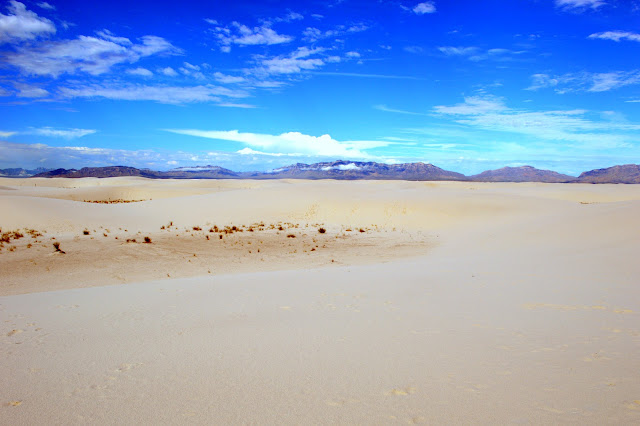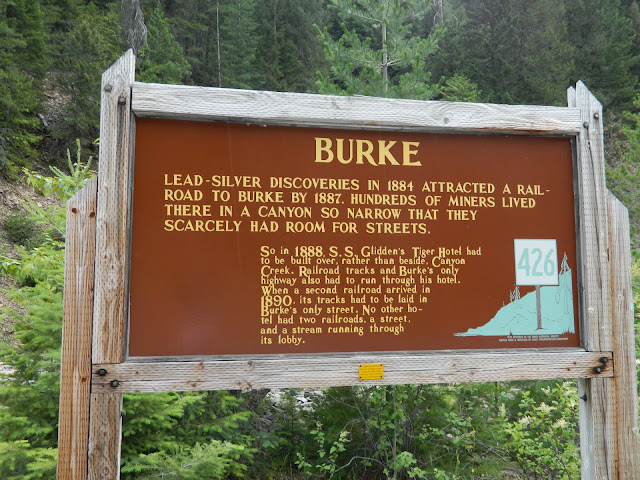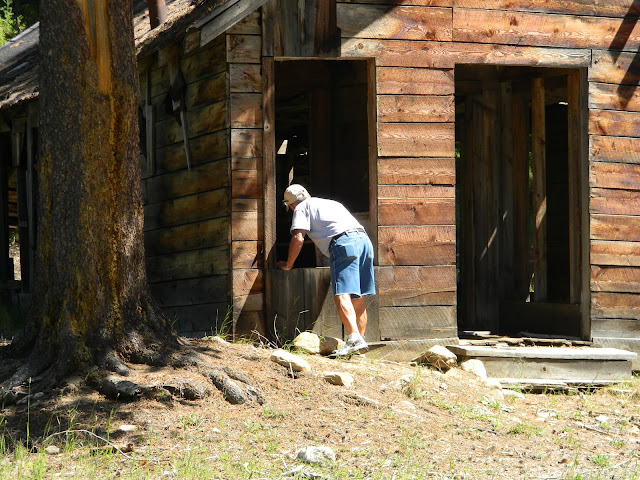Desert Apocalypse - What Are We Losing?
White Sands National Park in New Mexico, a very unique gypsum sand desert
How much thought have you given to the deserts globally? I have a special love for deserts because of the fact that they are so different from the landscape I grew up in. Many people tend to think of deserts as "sand-filled wastelands" because they don't support the same types of plant species as wetter places. However, this couldn't be further from the truth. There are actually quite a few species which call the desert home, more in some deserts than others. Because I live in the United States and have actually visited the deserts in the southwestern and western US, and because these lands are threatened with development for false "solutions" which actually propel us in the wrong direction, I decided to write this article based on what we stand to lose as a result of these actions. Several groups are actively involved in attempting to halt development in these deserts, a rather positive thing indeed. More people are needed to protest these developments, as said developments don't actually solve anything and do threaten far more than the species in the desert - they also threaten US - human beings.
As I pointed out a couple months ago in my article about civilization, so long as a particular goal is to sustain that which can not be sustained, society is doing nothing more than performing an exercise in futility. Society is simply denying reality and buying into false beliefs.
It is extremely important for everyone to understand limits, and a new short video from Nate Hagens nails it. Then there's this which explains these details in a much shorter span than most of my articles, although I don't agree with their take that "it's too late to do anything" in this bullet point, quote:
"To top this all off, once we DO grasp the relationship between growth, energy, and money and realize a likely trend of contraction for advanced economies [typically describing an industrial economy with a high average per-capita GDP. In 2016, the International Monetary Fund (IMF) defined 34 nations as advanced economies] in coming decades, we paradoxically (and quite quickly) switch from a "there's no problem" attitude to an "it's too late to do anything" position. This shift - again - obviates the need for personal, community, and global change."
Comprehending the juncture where energy, growth, and money (or the economy in general) all join is key. We are limited in options as to what we can do which will limit the damage, now that there are almost 8 billion of us on this planet; but there are still avenues available. This doesn't mean that these avenues are "solutions" by any stretch; we'll still have multitudes of issues increasingly causing added stress and adding to an already overloaded list of issues we will have to face. That being said, we don't have to make the situation worse as shown in the next paragraph.
So, what does all this have to do with the desert? This particular video provides a quite extensive debunking of one plan in particular. However, there is far more than just one plan out there which needs to be dealt with, and Justin McAffee shows the details in 3 unique videos (so far, as of 2-15-22). Once one understands precisely what is at risk, especially not just in the deserts here in the United States, but in ALL areas across the entire globe, he or she can truly appreciate the sheer scope with which we are literally destroying and undermining what is left of the biodiversity which supports our very existence. It is our insistence upon bargaining with the predicament of ecological overshoot rather than accepting the simple truth that nature does not bargain. We either recognize limits and boundaries or push these limits and boundaries beyond their tipping points. I used a link to the tipping points of the climate system since most people are familiar with climate change, but tipping points here actually refers to far more than just climate change, since it is just one of the symptom predicaments of ecological overshoot, the predicament causing those symptoms. We cannot look at the climate system in separation from all the other systems (everything is connected) which we depend upon for our existence, so biological systems, sociological systems, infrastructural systems, etc., ALL must be looked at and taken into consideration.
Continuing this article after a somewhat lengthy absence due to my father's passing, it may seem somewhat disconnected. I do apologize for this, as attempting to remember where my train of thought was back in February isn't as easy as I first imagined. I guess I've done a little sleeping since then!
Justin has done an absolutely excellent job of bringing to light the troubles that deserts face with regard to the overwhelming pressures to mine different materials and build energy projects in them, among other things to support civilization. One particular site of interest I discovered through research for this particular post is Basin and Range Watch which points out different projects threatening the deserts of Nevada and California along with a whole host of other interesting subjects.
Another video Justin has made asks the question whether climate change is the only problem (he spelled "predicament" incorrectly here) we should focus on. I really like this question (and many of the other questions he ponders), because he has latched onto the fact that climate change is being caused by ecological overshoot, no differently than the mass extinction we are currently in. This is because these two symptom predicaments as well as a whole host of other symptom predicaments are ALL being caused by ecological overshoot, the master predicament. More on this can be found in many of my articles, but since he mentions fossil fuels, perhaps one of the best articles to link to here is the one I just finished, What Is Oil and Why Is It So Special?
Another unique quality to Justin's video is the fact that he brings up wetiko (see this article by Russell Means), a form of psychosis described here in the Wiki entry. Here he explains the unsustainability of civilization which he does so well.
Yet another interesting article about the desert which I have brought up before involves the state of the Joshua Trees (in serious decline) and other flora and fauna in the area and how habitat is being changed by ecological overshoot and climate change.
Needless to say, I have highlighted numerous issues regarding desert landscapes here and this article wouldn't be complete without mentioning the fight for Thacker Pass that Will Falk and Max Wilbert are spearheading along with countless others. I encourage you to support these efforts in any way you can. It is difficult to explain what kinds of places exist in the desert - magical places that take one's breath away. This particular picture below is from Great Basin National Park near Baker, Nevada; not a place most people would ever associate with a desert:
While most places in the desert are far more arid than this alpine location, many places in the desert like this exist which demonstrate that desert areas can be far different than one might think. This particular area is now protected against industrial development, although it once did host industrial projects in the past as indicated in this Historic Resource Study. Mining and ranching both took place here, as in many other desert locations, and the reasons I know about this stem from my general interest in mountains, my travels to mountain locations such as this, and my interest in history.
Since I talked about my dad's passing, I should also mention that he and I actually spent some time in several different locations out west in 2012 in the mountains where ghost/mining towns (another interest of mine) exist. Countless locations in the mountains out west have a rather colorful history. I have a rather large number of pictures from multiple trips that look like the pictures below:
The really neat thing about these signs is that there is a database file which contains all the signs in Idaho! There is always more to know about a particular location, and the trips I have been on are special for far more than just the trip itself. I inevitably find a desire to learn more about certain places, so I often keep notes about these certain spots to research them later. When I planned my trip with my dad, I added these ghost towns since I didn't know precisely what he might find interesting.
I have strayed somewhat from the desert apocaplypse which this article is about, but an important aspect of the desert apocalypse which I am covering now has to do with extraction, and the same destruction going on in the desert is also taking place in a multitude of other areas. The pictures below were taken on the Gold Rush Loop Tour located between Mt. Idaho and Elk City, Idaho, pretty much in the middle of nowhere:
I framed this picture by using a window of the house I was in to take a picture of the house next door.
Dad was busy checking out the inside of this house located at the Gnome Mine Site.
As I have repeatedly said time and again, technology can not and will not solve the predicament technology use has caused, and this same truth can be extended to extraction, since ALL technology requires extraction (or mining) of one type or another. A friend of mine made a post today about a new study - National responsibility for ecological breakdown: a fair-shares assessment of resource use, 1970–2017 - and I shared it with this warning, quote:



















Comments
Post a Comment